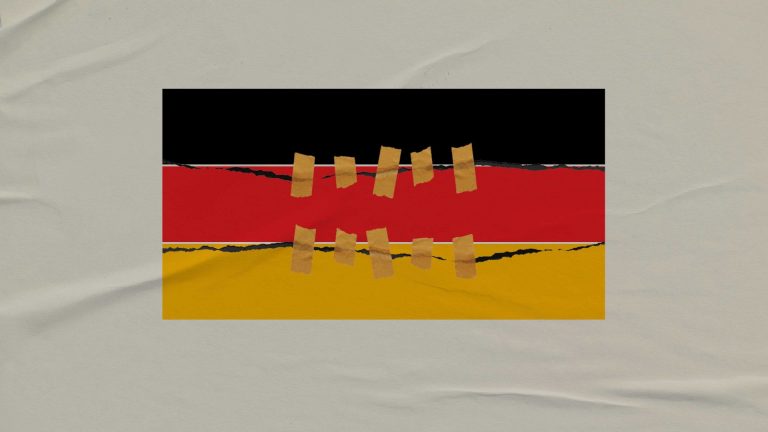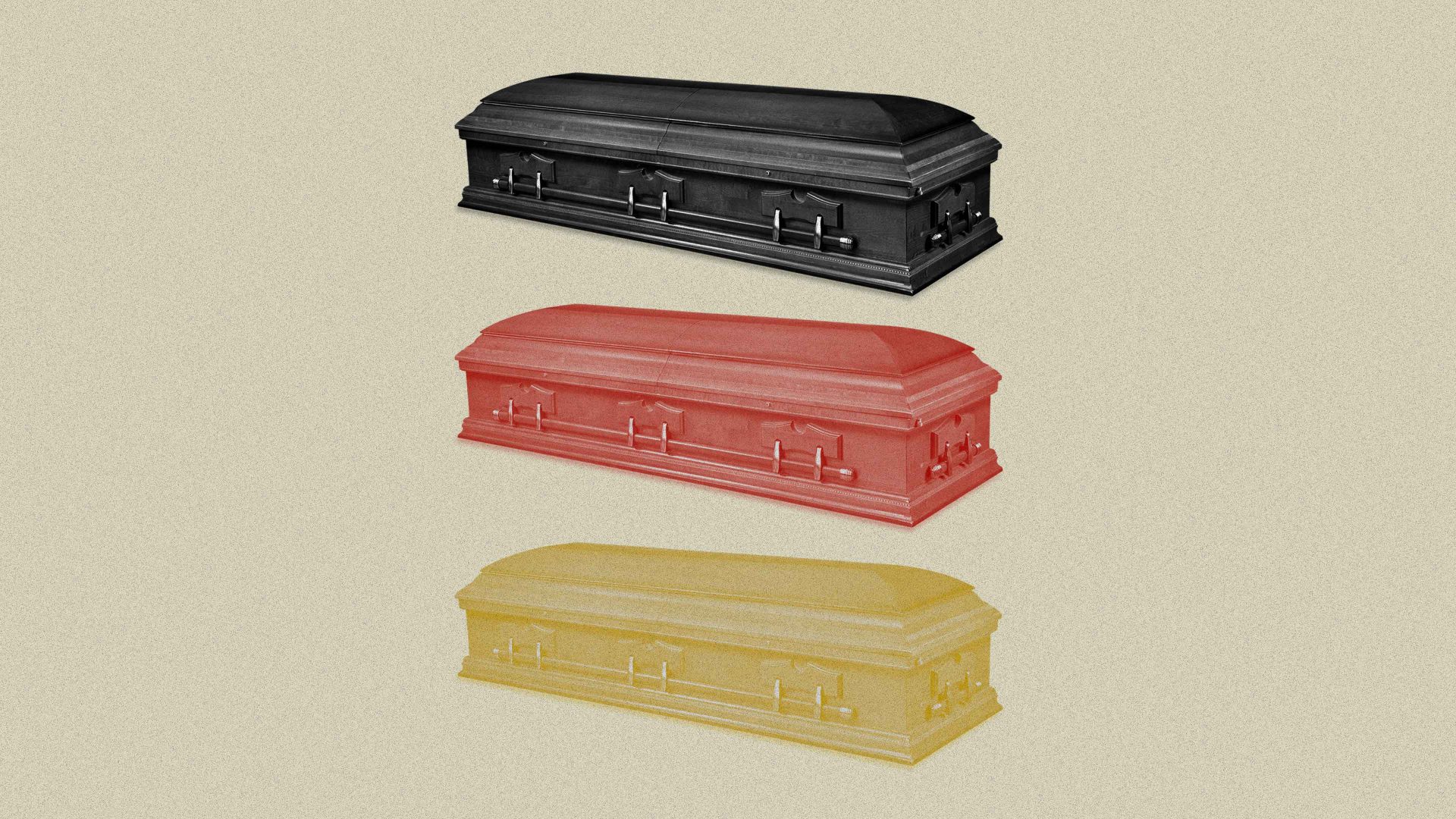If you think funerals are a private matter, you’re clearly not German. Here, they’re a highly regulated affair – with compulsory urn and coffin sizes, official rules for the material of your “final outfit” and, naturally, strict burial deadlines (poetic, really).
One out of the 16 Bundesländer, however, has just loosened the red tape – and hopefully, the others will follow suit.
Contrast that with the UK: I’m always slightly stunned by British TV ads for funeral plans. I can’t speak to the quality of these services, but you could watch German telly non-stop and never come across anything remotely similar.
Maybe the British are just better at facing the inevitable – slotting mortality neatly between Emmerdale and Coronation Street. Or maybe it’s because commercialising death in Germany is tightly regulated (another way of saying banned, basically).
The result? Despite an ageing population, death is rarely discussed in public and often dealt with at – quite literally – the last possible moment. And for decades, the whole admin surrounding death went largely unquestioned. Sure, hygiene matters, and human dignity deserves rules even after death. No one’s advocating a DIY grave in the garden…
Historically, state involvement developed out of church control. In 786, Charlemagne banned cremation as a pagan rite and made churchyard burials compulsory. It took more than 1,000 years for the first official cremation – in 1874, in Breslau, during a naturalists’ convention (you couldn’t make this up).
Fun fact: the second official cremation took place that same year – it was an Englishwoman, Katherine Dilke, the wife of under-secretary of state Sir Charles Dilke. She had specified this form of burial in her will, but as it wasn’t possible in Britain at the time, she was moved to Dresden. A portion of Lady Dilke’s ashes is still conserved in the city’s archives.
Shortly after, a club was founded in the Saxonian capital: “The Urn – Association for the Facultative Incineration of Corpses”, which in 1876 organised the first “European Congress of the Friends of Cremation”. Monty Python would have been proud.
Suggested Reading


Is AfD tearing Germany apart?
It was the Nazis, in 1934, whose legislation put cremations on a par with earth burials. They also decreed that urns must be interred in official cemeteries. Many of those laws were later absorbed into state-level burial codes – and remain in force. That’s finally about to change.
Funeral customs are evolving. Even the Catholic Church no longer insists that a burial in a coffin in a cemetery is essential for resurrection.
Cremation has been gaining ground for years, and placing a biodegradable urn at the roots of designated trees – the Friedwald (forest cemetery) instead of the Friedhof (graveyard) – is an even more sustainable and low-priced alternative.
Local administrators have grudgingly accepted the trend, which for them means lower fees and vacant rows of burial plots. But they’re partly to blame: after centuries of monopolising all things funeral, there’s still a shocking lack of service mentality. In some towns, for instance, you can’t even hold a funeral on a Saturday or after 2pm due to staff shortages – even though private undertakers could easily step in and fill the gap.
The new funeral law in Rhineland-Palatinate is the first in Germany to truly roll back state control: it lifts the obligation to bury the deceased in a cemetery. You can now keep the ashes outside of graveyards – even at home, if you want to.
Ashes may also be pressed into diamonds, Swiss-style. So-called shroud burials – ie no coffin – are permitted regardless of the deceased’s religious beliefs. And river burials, as practised in the Netherlands, are allowed in the state’s stretches of the Rhine, Moselle, Saar, and Lahn, using cellulose urns that dissolve in water.
There are still certain rules: only licensed undertakers are allowed to scatter ashes outside of cemeteries or divide them into smaller urns if several family members want to keep a part.
Critics, among them the Christian Democrats, lament that this is yet another nail in the coffin of public mourning in cemeteries. On the other hand, for a growing number of people, it’s not the headstone or cross that keeps the memory of their loved ones alive, but a diamond ring or an urn on the living-room shelf.
And in the end: who’s to judge? Certainly not the state.




